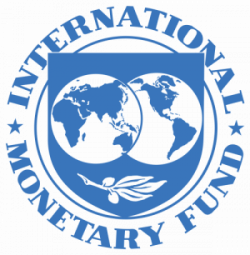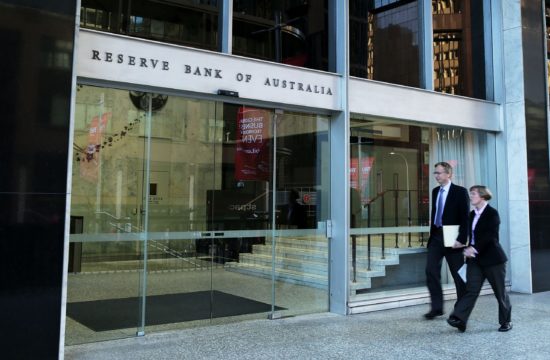By Kristalina Georgieva, IMF Managing Director
Washington, DC
Introduction and Outlook
Welcome to our virtual 2020 Spring Meetings!
I would like to start by wishing you and your families my personal best—for your health and safety in these difficult times. I would also like to express my profound gratitude to all those doctors, nurses, and workers who are serving so selflessly on the front lines of this health crisis.
As we start these meetings, I thought about the words of T.S. Eliot, who said: “April is the cruelest month.” Indeed, while Spring is underway, while nature is reawakening, humanity is facing one of its darkest periods in living memory.
Covid-19 is causing tragic loss of life; and the measures needed to fight it have turned our world upside down—affecting billions of people and stopping economies in their tracks.
As I said in my curtain raiser speech, this is a crisis like no other.
We anticipate the worst economic downturn since the Great Depression. While there is tremendous uncertainty around the forecast, we project global growth to fall to-3 percent this year. And we project apartial recovery in 2021, with growth expected at 5.8 per cent.
That is our baseline scenario. We know that it could get much worse depending on many variable factors, including the depth and duration of the pandemic.
We also know that, despite the extraordinary uncertainty, we can chart a path forward.
Policy Recommendations
In our Global Policy Agenda, which we are releasing today, we outline the measures needed to overcome this crisis. Appropriately, it is titled ‘Exceptional Times—Exceptional Action.’ Let me highlight three priorities:
(1) First—protect lives. The fact is that you cannot have a healthy economy without a healthy population. This means continuing with essential containment measures and prioritizing health spending. It also means refraining from export controls on medical supplies and food.
(2) Second—protect livelihoods. We must prevent liquidity pressures from turning into solvency problems. This is about creating lifelines for households and businesses, from cash transfers to credit guarantees and adjustments to loan terms. Protecting livelihoods also requires a financial system that continues to function under pressure. Here, monetary stimulus and liquidity facilities play an indispensable role.
(3) Third—plan for recovery. We must reduce the risk of irreversible economic scarring through policy action now. In time, as the global economy stabilizes, coordinated fiscal stimulus will be needed to boost demand and restore growth. For its part, the IMF will support its member countries as they confront the post-crisis challenges, including debt vulnerabilities, bankruptcies, unemployment, and economic inequality.
In all these priority areas, countries with limited resources will need more support.
Many emerging markets and low-income nations have weaker health systems to begin with. They are facing record-high portfolio outflows—more than $100 billion in just the past two months. Many can cover only a portion of their external financing needs, which are estimated to be in the trillions of dollars; and some may face an unsustainable debt burden.
The encouraging news is that so many countries have deployed extraordinary policy measures—including fiscal actions amounting to about $8 trillion and liquidity injections by central banks amounting to over $6 trillion. And yes, there has been substantial coordination. But given the gravity of the crisis, significant further efforts will be needed.
The international community must step up efforts to help the most vulnerable countries by providing increased funding as well as debt service relief—thereby creating space for spending on urgent health needs and mitigating the economic impact of the crisis.
The reality is that anyone’s fight against the virus is everyone’s fight. More than ever, we need global solidarity, a common resolve, and coordinated international efforts.
The Role of the IMF
That is why the IMF is working around the clock—it’s all-hands-on-deck as we support our 189 member countries with policy advice, technical assistance, and financial resources.
- We have $1 trillion in lending capacity, which we are placing at the service of our membership.
- We are responding to an unprecedented number of calls for emergency financing—from more than 100 countries. We have just doubled access to our emergency facilities, which will allow us to meet the expected demand of about $100 billion in financing. Lending programs have already been approved at record speed for over 20 countries, with many more to come.
- Today our Executive Board will be discussing a new short-term liquidity line—for countries with strong economic fundamentals. And our membership is exploring additional tools to help meet countries’ financing needs, including how to best use the SDR.
- We have revamped our Catastrophe Containment and Relief Trust to provide immediate debt relief on IMF obligations to low-income countries affected by the crisis. Our Executive Board has just approved assistance to 25 countries. We are now working with donors to almost triple the CCRT from $500 million to $1.4 billion to extend the duration of relief.
- And together with the G20, the World Bank and many others, we are calling for a standstill of debt service to official bilateral creditors for the world’s poorest countries.
When Governors of the IMFC meet tomorrow, I will be seeking their endorsement for this concrete package of measures that can be deployed quickly.
In this time of crisis, we must remember that this too shall pass. We will get through this. How well and quickly we get through it depends on us acting now—and acting together.
These are exceptional times; we need exceptional action.
With that, I am happy to take your questions.














